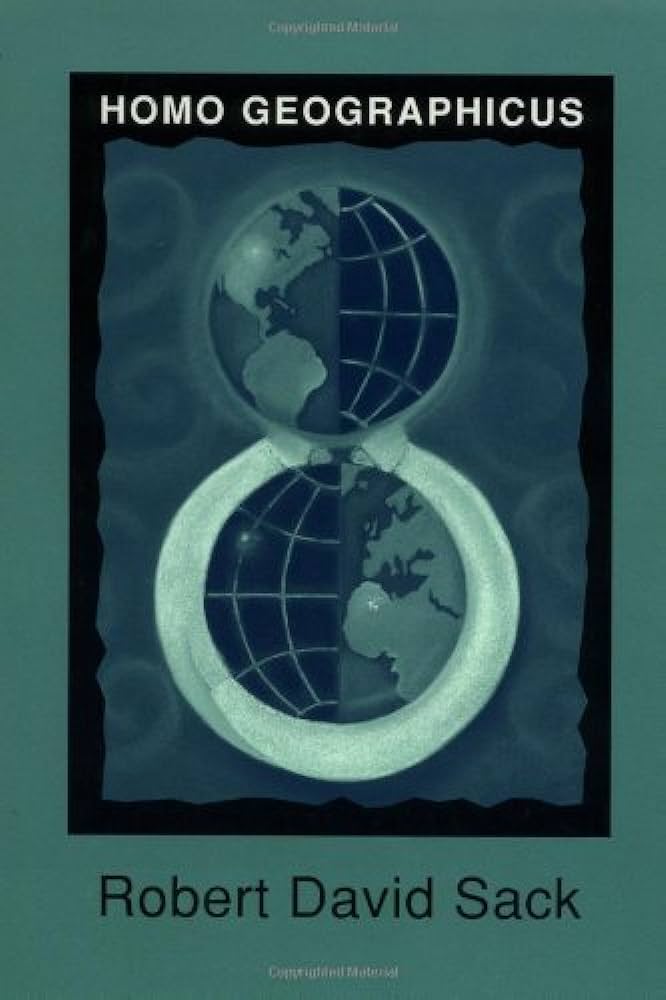In Homo Geographicus, Robert Sack offers a compelling exploration into the realms of geography that extends far beyond the traditional understanding of the subject. As a Geographer a degree from Texas A&M, I firmly believe that Sack’s work serves not only as an indispensable primer for students of geography but also as a foundational text for all engaged in social studies. Sack’s eloquent discourse on the interplay between humans and their environment provides insightful perspectives on the forces that shape our world and, consequently, our actions within it.

Central to Sack’s thesis are the three areas of “force” that drive human activity: Meaning, Nature, and Social Relations. These forces, according to Sack, are the fundamental elements that determine how humans interact with their surroundings. The first force, Meaning, delves into the symbolic and cognitive interpretations of the world. It’s about how individuals and societies understand and ascribe value to their environment, which in turn influences their behavior and interactions. This concept underscores the importance of perception in geography, suggesting that our actions are often a reflection of how we interpret our surroundings.
Nature, the second force, represents the physical and biological aspects of the world. Sack argues that while humans have the ability to modify and adapt to their natural surroundings, the constraints and opportunities presented by the environment play a significant role in shaping human activity. This interaction between humans and the natural world is a dynamic process, highlighting the importance of geographical knowledge in understanding the limits and possibilities of human-environment interactions.
The third force, Social Relations, focuses on the ways in which societal structures and relationships influence spatial dynamics. Sack posits that the organization of society, including economic, political, and cultural systems, has a profound impact on how space is used and perceived. This perspective emphasizes the role of geography in understanding social inequalities, power dynamics, and the spatial organization of societies.
Sack’s Homo Geographicus is a masterful work that challenges readers to reconsider the role of geography in human life. By weaving together Meaning, Nature, and Social Relations, Sack provides a comprehensive framework for understanding the geographic forces that drive human activity. His argument that geography is not merely a backdrop for human action but a critical, active force in shaping our world is both provocative and enlightening. As such, “Homo Geographicus” should be considered essential reading for anyone interested in the complexities of human-environment interactions. Its insights are not only relevant for students of geography but are also invaluable for a broader audience engaged in the social sciences. Sack’s work is a testament to the importance of geographic perspective in comprehending the multifaceted nature of human life and offers a rich foundation for further exploration and study.

